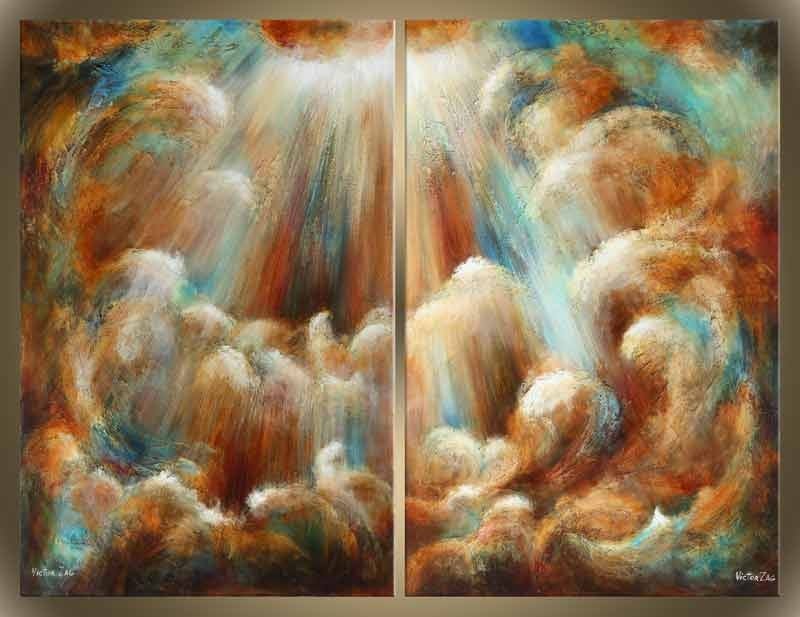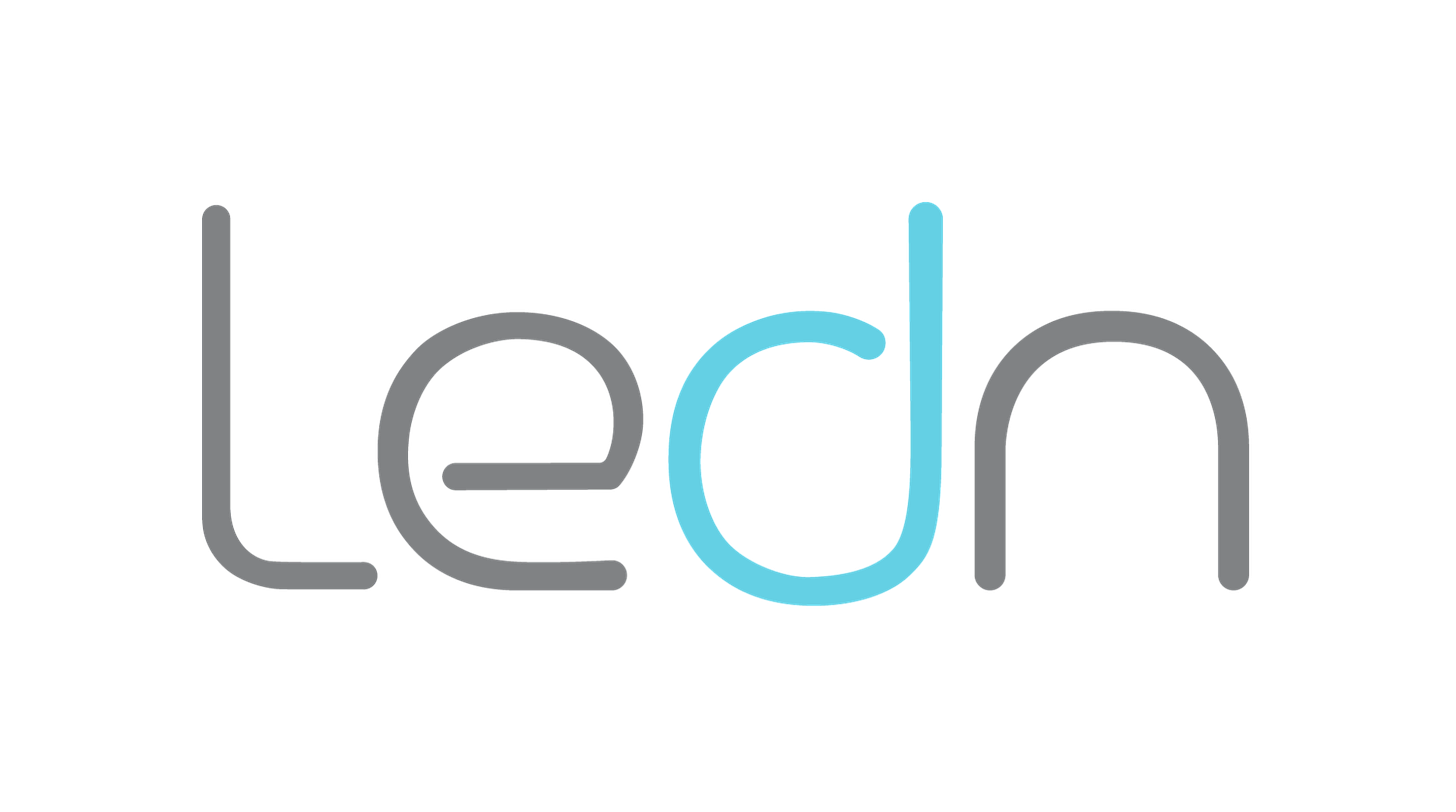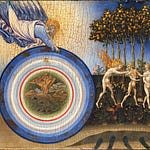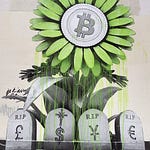*In this multi-part special edition of The Freedom Analects, we will be featuring the excellent written work of author John Vallis titled “Money Messiah: God, Bitcoin, and The Evolution of Consciousness.” This essay beautifully depicts the deeper aspects of value and money, their indispensability to human action, and demonstrates why corrupt money is such a destructive force. John’s original work is available in its entirety here.
Does ‘Faith’ Play a Role?
What is faith?
Well, a dirty word, for starters. It would seem that its abuse and misapplication over many years, combined with its (apparent) decreased utility in an increasingly ‘knowable’ world, has caused this word to elicit a kind of disgust from many people, as though they would never be so naive to engage in such an obviously ridiculous behaviour.
But is it that ridiculous?
It seems to me that faith is a far more necessary component of engaging reality — of consciousness — than most people credit it with.
Is it not the recognition that decisions involve comparing value, and at the base of all value is an assumption about truth, a wager — if you like — that holding certain principles ‘as true’, is the closest to certainty one can get? Furthermore, what one holds ‘as true’ is of the utmost significance — potentially the most important determination one can make — due to how it will direct and guide ones actions and life.
Faith, then, would seem to be ‘acting as though’ what one holds as true — is truth — despite never being able to, rationally, reach such a conclusion. The religious enterprise has been, in effect, one that seeks to reduce the likelihood of error in this process, by closing the gulf, or minimizing the ‘leap’, so to speak, that one must take between ‘true enough’ and ‘truth’.
Perhaps ‘religion’ is simply the effort to increasingly discover and refine the ‘truest true enoughs’ — motivated by the recognition of the central importance of this set of ‘a priori’ principles or axioms — for the construction of an ‘optimal framework’ by which to ‘best engage reality’.
*Ledn has recently launched a Bitcoin-based home mortgage product. Now you can buy your dream home without selling your Bitcoin!
Sign up with Ledn to get started today: https://mortgage.ledn.io/
Religion seems to, quite rationally, posit that if certain behaviours, grounded in certain principles, lead to the best outcomes (for individual and society), then they must ‘mean something’ in terms of coherence with the primary forces which act upon us, and which serve as some kind of fundamental architecture of reality, at least in so far as human consciousness experiences it.
As a simple example, what would be the consequences of having a faith in — or holding as axiomatically true — the primacy of either the ‘divine sovereignty of the individual’ or the ‘well-being of the collective’?
It seems obvious that each would yield dramatically different opinions and actions on a variety of issues.
Both involve a kind of faith, and the religious enterprise would seem to be devoted to observing the outcomes of holding different things as ‘foundational truths’, and thereby determining which are most ‘valid’, and based on that, making inferences about the ‘structure of reality’ — that is, attempting to determine what ‘makes them’ valid. This is by no means a rudimentary or juvenile pursuit, in fact it’s hard think of one more important, or more challenging.
Put another way, the core of the religious enterprise seems to be the process of attempting to ensure that the faith that must necessarily be applied to ‘act as though true’, is done so with the closest approximation to what ‘is true’ — or ‘god’ — as possible.
Even the staunchest atheist leverages ‘faith’ in this way, even if subconsciously, as they too must necessarily adopt certain axioms or principles that can only ever be held ‘as though true’, to orient their consciousness and the actions that follow from it.
It’s interesting to consider whether, for this reason, faith is what becomes instilled in those who encounter the ‘deepest’ forms of truth, as a kind-of subconscious attempt to integrate them, while accounting for the inability of the mind to fully comprehend them.
*Join me at the biggest event of the year, Bitcoin 2022. See below for 10% discount on tickets*
“Bitcoin 2022 Conference is the biggest gathering of the Bitcoin ecosystem in the world. Join me and the movers and shakers shaping the Bitcoin future next April 6-9th in Miami Florida for Bitcoin 2022 Conference.”
Paying with Fiat? 10% Affiliate link: http://tixr.com/pr/robertbreedlove/26217
Paying with Bitcoin? Use promo code: BREEDLOVE.
If so, perhaps faith, when you boil it all down, is a practical (and potentially involuntary) means of accounting for our eternally limited knowledge of both ourselves, and the reality we inhabit.
It seems unlikely then that, applied properly, it’s simply a placeholder for a temporary ‘ignorance’.
It may instead be an unavoidable requirement to adhere to any absolute — and gain the value that doing so provides — as a strictly ‘rational’ (limited) mind could never assume complete-enough knowledge to do so.
Perhaps it is, in effect, a self-imposed limitation. An intentional act of humility, or ‘submission’, to (a) ‘god’ — principle or axiom which aligns, or attempts to align, with the ‘truest truths’ about reality — the very act of which invites the generative aspect of the unknowable, which we might call ‘divine wisdom’, in?
Maybe.
It seems possible to me that, absent such a ‘faith’ — such a humility — hubris and arrogance are inevitable, and may at some point lead to the belief that we can and should pursue, and rely solely on, our forever transient understandings and desires.
In following only our own reason (forever limited as it is), we may lose our connection to the ‘value we cannot see’, which perhaps only a humble (yet justified) faith can maintain.
In Part 11, we will see how this exploration of faith relates to Bitcoin…
Thank you for reading Money Messiah (Part 10).
PODCAST
SOCIAL
SUPPORT
Send Bitcoin to my PayNymID: +tightking693
RECOMMENDED BUSINESSES
Automatically buy and withdraw Bitcoin ($10 in free Bitcoin here)
Join Me at the Bitcoin 2022 Conference in Miami, FL (Code: BREEDLOVE)
Home Delivered Organic Grass-Fed Beef (Discount Code: BREEDLOVE22)
Bitcoin-based home mortgages with Ledn: A better home for your Bitcoin
If you’ve found my work to be valuable, please join our private telegram group:

















Money Messiah (Part 10)